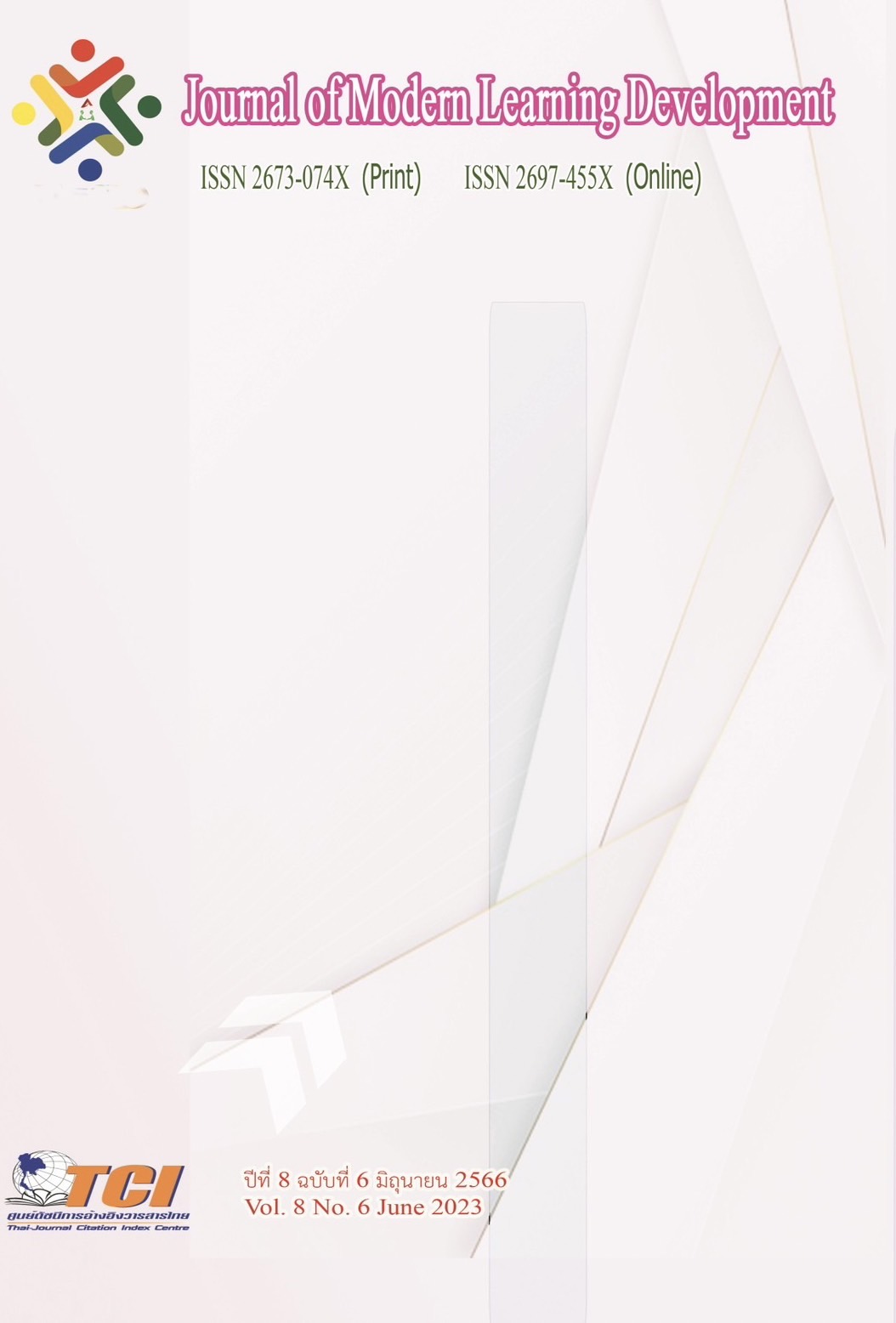The Effect of Simulation Base Training Program on Interpersonal Communication Skills of Worker in Community
Main Article Content
Abstract
This quasi-experimental research There is a purpose 1. To compare the interpersonal communication skills before and after participating in the training program by using simulations to interpersonal communication skills. 2. To compare the interpersonal communication skills of the experimental group and the control group. After participating in the training program using simulations on interpersonal communication skills. The sample is Community practitioners of the integrated sub-district economic and social upgrading project (1 sub-district, 1 university), Chanthaburi Province, totaling 60 people were randomly selected for the experimental group and the control group. 30 people per group. The research tools consisted of 1) a simulation training program on interpersonal communication skills of community workers; 2) an interpersonal communication skills test. Passed the equipment quality check by 5 experts. Statistics used in data analysis were frequency, percentage, mean, standard deviation. and 2 types of difference t-test were Pairs t-test to test the differences of the samples before and after participating in the training program using a simulation and Independent Sample t-test to test the differences between the groups. Trial and control group before – after participating in the simulation training program.
The results showed that 1) after the experiment. The experimental group had both aspect and overall changes higher than before the experiment with statistical significance at the 0.05 level. 2) After the experiment. The experimental group had both aspect and overall changes higher than the control group at a statistical significance of 0.05.
Article Details
References
กระทรวงการอุดมศึกษา วิทยาศาสตร์ วิจัยและนวัตกรรม. (2563). โครงการยกระดับเศรษฐกิจและสังคมรายตำบลแบบบูรณาการ (1 ตำบล 1 มหาวิทยาลัย). ออนไลน์. สืบค้นวันที่ 12 กุมภาพันธ์ 2565 แหล่งที่มา https://www.mhesi.go.th/index.php/flagship-project/2690-u2tambon.html
โครงการยกระดับเศรษฐกิจและสังคมรายตำบลแบบบูรณาการ (1 ตำบล 1 มหาวิทยาลัย). (2564). ปัญหาและอุปสรรคในการสำรวจข้อมูลชุมชน. ออนไลน์. สืบค้นวันที่ 12 กุมภาพันธ์ 2565 แหล่งที่มาhttp://u2t.bru.ac.th/uncategorized/
จิตสุภา กิติผดุง. (2564). กิจกรรมการเรียนรู้แบบสถานการณ์เป็นฐานในการส่งเสริมความเป็นพลเมืองในระดับอุุดมศึกษา. วารสารสันติศึกษาปริทรรศน์มจร, 9 (5).
ดวงธิดา รักษาแก้ว. (2552). ผลของปฏิสัมพันธ์ทางการเรียนออนไลน์ในสถานการณ์จําลองที่มีต่อทักษะการสื่อสารระหว่างบุคคลของนักเรียนระดับมัธยมศึกษาปีที่ 5. วิทยานิพนธ์ ปริญญามหาบัณฑิต. สาขาวิชาโสตทัศนศึกษา. บัณฑิตวิทยาลัย : จุฬาลงกรณ์มหาวิทยาลัย.
ทิศนา แขมมณี. (2552). รูปแบบการเรียนการสอน : ทางเลือกที่หลากหลาย. กรุงเทพฯ: โรงพิมพ์แห่งจุฬาลงกรณ์มหาวิทยาลัย.
บุญเรียง ขจรศิลป์. (2549). สถิติวิจัย 1. กรุงเทพฯ: ภาควิชาการศึกษา คณะศึกษาศาสตร์ มหาวิทยาลัยเกษตรศาสตร์.
ปัญญา เลิศไกร, ลัญจกร นิลกาญจน์. (2559). การเก็บข้อมูลวิจัยชุมชนภาคสนาม. วารสารนาคบุตรปริทรรศน์มหาวิทยาลัยราชภัฏนครศรีธรรมราช.
ระวิรัฐ รุ่งโรจน์. (2559). การพัฒนาความสามารถในการสื่อสารระหว่างบุคคลโดยใช้โปรแกรมฝึกอบรมเชิงจิตวิทยา. ปริญญานิพนธ์การศึกษามหาบัณฑิต. สาขาการวิจัยและพัฒนาศักยภาพมนุษย์. บัณฑิตวิทยาลัย : มหาวิทยาลัยศรีนครินทรวิโรฒ.
อรพินทร์ ชูชม. (2552). การวิจัยกึ่งทดลอง. วารสารพฤติกรรมศาสตร์, 15(1).
Devito J. A. (1995). The Interpersonal communication book. New York: Harper Collins College
DeVito J.A. (2013). The Interpersonal Communication Book. New Jersey: Pearson Education, Inc.
Gredler, M. (1992). Designing and evaluation games. London: Kagan Page
Harnof S., Hadani M., Ziv A., Berkenstadt H. (2013). Simulation-based interpersonal communication skills training for neurosurgical residents. Isr Med Assoc J, 15(9), 489-492.
Ivan Strygacz., Avraham Sthub. (2018). Combining Simulation-based Training and Flipped Classroom in Project Management Learning: Canadian Center of Science and Education.
Standsklev R. (1974). Handbook of Simulation Gaming in Social Education, Part One. Alabama: Instituted of Higher Education Research and Survives The University of Alabama.


